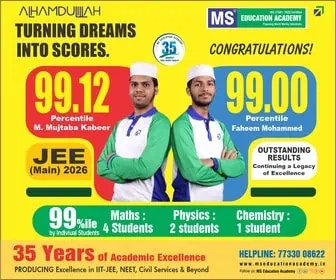
A fresh controversy has emerged over the integrity of the H-1B visa programme as Indian-American diplomat Mahvash Siddiqui and former US Congressman Dr. Dave Brat brought forth serious allegations of fraud focused on Hyderabad and Chennai, key gateways for Indian applicants.
Siddiqui, who served as a US consular officer in Chennai from 2005 to 2007, disclosed in the podcast “Parsing Immigration Policy” that 80-90 percent of H-1B visas issued to Indian applicants during her tenure involved fake degrees, proxy interviews, and forged employment documents.
Hyderabad’s Ameertpet area mentioned
Hyderabad’s Ameerpet area was specifically identified as a hub where fake certificates and letters are openly sold to boost visa approvals. Despite efforts by consular officers to address these issues, Siddiqui said political pressures prevented meaningful investigations, labelling their anti-fraud actions as “rogue operations.”
The Chennai consulate, responsible for visa applications from Tamil Nadu, Karnataka, Kerala, and Telangana, including Hyderabad, was noted by Siddiqui as processing over 51,000 visas during her time there.
Economist Dave Brat cites massive irregularities in Chennai
Dr. Dave Brat, on the “Steve Bannon’s War Room” podcast, pointed to massive irregularities, noting that over 220,000 H-1B visas were issued from Chennai in 2024 alone, nearly three times the 85,000 visa cap set by the US Congress for India.
He called the situation an “industrial-scale fraud” that threatens US workers by replacing genuinely skilled professionals.
“71 per cent of H-1B visas come from India, and only 12 per cent from China. That tells you something’s going on right there,” Brat said. “There’s a cap of only 85,000 H-1B visas, yet somehow one district in India — the Madras (Chennai) district — got 220,000. That’s 2.5 times the cap Congress has set. So that’s the scam.”
Proxy interviews, bribery
Siddiqui indicated how proxy interviews and bribery were entrenched systems, with some Indian managers reportedly accepting payments to grant fake job offers required for visa approvals.
Political interference obstructed fraud investigations, with many politicians implicated and resulting pressure to drop probes, she added.
The disproportionate share of visas to Indian nationals, 71 per cent compared to 12 per cent allotted to Chinese applicants, raises further concerns about system abuse centred in Hyderabad and Chennai, Siddiqui said.
She added that fraud and bribery have become widespread in India, and alleged that some applicants would skip interviews if the officer was American, with proxy candidates sometimes attending in their place. She also claimed that certain hiring managers in India demanded bribes in exchange for job offers, which were used to support visa applications.
The H-1B visa program, intended to attract skilled foreign professionals predominantly in science and technology fields, now faces intensified scrutiny after these revelations.




